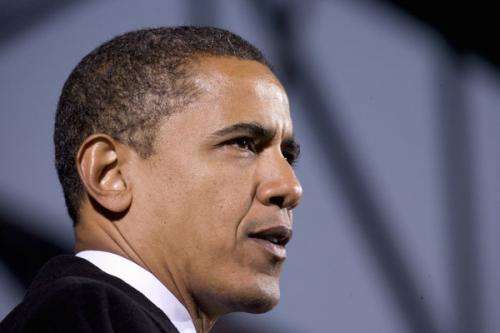3Qs: How Obama won, and the road ahead

We asked experts from across the university to assess President Barack Obama's victory over Republican challenger Mitt Romney in the race for the White House. Here, former presidential candidate Michael Dukakis, health law expert Wendy Parmet and public speaking expert Greg Goodale weigh in on the conclusion of the campaign and analyze the impact of President Obama's re-election.
How were President Obama and Massachusetts Senator-elect Elizabeth Warren able to win in very tight races?
Gov. Michael Dukakis, Distinguished Professor of Political Science: Obama and Warren won for one reason: There was a ground game! Why more people don't get this, I don't know. It's about blocking and tackling, it's about making sure your precinct captains and volunteers are out there making contact with people on a personal basis—and doing this more than once. If you want to win these days, this kind of operation is the only way to beat big money. You're not going match guys like Karl Rove, who can spend millions of dollars on TV ads, but you can beat them on the ground.
The other thing that influenced this year's races is that the country is changing. In 20 years, the whole country is going to look like California. Back in 1988, I lost California to George Bush by two points, and no one had come that close since Lyndon Johnson. Then Clinton cracked through finally and that state, with its great diversity, has gone for Democrats ever since. And the rest of the country is starting to look like that too. That doesn't mean the Democrats can go to sleep—they need to take advantage of that starting right now, if they want to take back the house in 2014.
What did Barack Obama and Mitt Romney accomplish with their election night speeches to the nation?
Greg Goodale, associate professor of communication studies: There has been a complaint from Democrats that Obama has lacked passion, which we saw in his convention speech, where he was dull, and in that first debate, where he didn't seem engaged. I think a lot of people were worried he had lost that passion, the fire in his belly. But Tuesday night, I think for the first time since maybe even 2007, we saw that man, who was energized while able to reach across the aisle in his speech and work on some major issues.
I think Mitt Romney's speech was gracious and bipartisan—something we really hadn't seen from him on the campaign trail. It was a dimension that was very well-received and which would have served him well. If that Romney had been campaigning, this could very well have been an entirely different election.
How will Obama's re-election influence the fate of the Affordable Care Act and the balance of the Supreme Court?
Wendy Parmet, George J. and Kathleen Waters Matthews Distinguished University Professor of Law in the School of Law: This eliminates a lot of the uncertainty. We know now that the Affordable Care Act will go forward; it will be implemented and that's going to be hard to change. A lot of questions, though, remain on the table, one being the fiscal cliff and what if anything that will mean for Medicare and Medicaid. There are some very big decisions for the states, some very crucial decisions: They have a very short time now to decide if they're going to set up their own insurance exchanges; many of them have so far been holding back. The most important part, though, is the Medicaid expansion, which is crucial to covering a large number of the uninsured.
It's likely that the president will have one or two appointments to the Supreme Court over the next four years. Depending on whom he appoints, he may be able to change the dynamics on the court. What is clear, I think, is that the court will not go further to the right. We have a very conservative Supreme Court right now and in most matters there is a five-member conservative majority—we've seen that in a lot of cases, most notably Citizens United. This is a far more conservative court than we've had in a long time. If Romney had won it could have gone further to the right, or at least cemented its right-leaning principles.
Provided by Northeastern University



















